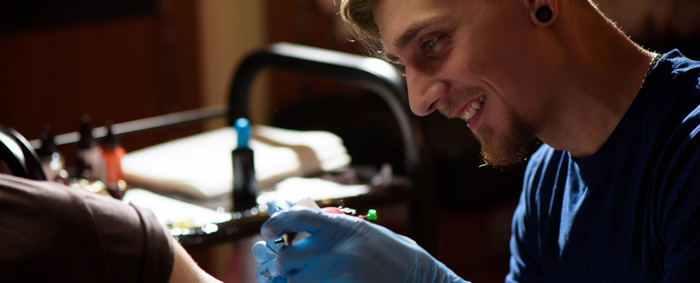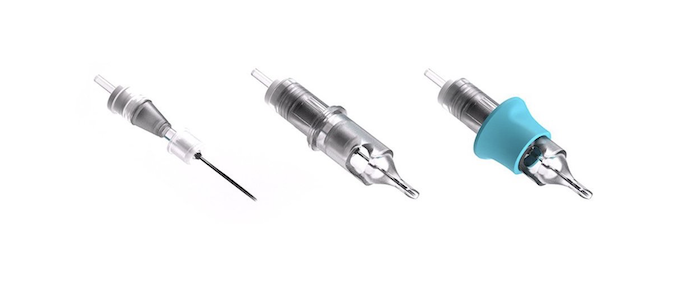As a tattoo artist, it is crucial to prioritize cleanliness and hygiene in your practice. Properly sterilizing your tattoo equipment is essential for the safety and well-being of both you and your clients. In this guide, we will explain the step-by-step process of cleaning, disinfecting, and sterilizing your tattoo machine. Follow these guidelines to ensure a safe and hygienic tattooing experience.
Table of Contents
ToggleCovering Your Tattoo Machine and Grip/Tube
When tattooing, it is important to cover your tattoo machine and grip/tube to prevent contamination. Use a plastic bag or a fitting clip cord sleeve to cover your machine, ensuring it is sealed properly. Disposable grips and tubes are also a great option if you prefer a more convenient and hygienic approach. Remember to change the plastic bag and gloves, as well as clean your working area, after each customer to maintain cleanliness.
Cleaning Your Tattoo Machine
Before and after each tattoo session, it is crucial to clean your tattoo machine thoroughly. Disassemble the machine and wipe all parts using a disinfectant spray and paper tissues. Pay attention to cleaning the inside parts and the tattoo machine grip (if not using disposable grips). Ensure that your tattoo machine looks clean and free from any stains or visible dirt.
Disinfecting Your Tattoo Machine
After cleaning, it is time to disinfect your tattoo machine. Spray a disinfectant of your choice on each part, allowing it to dry for about 10 minutes. Wear fresh medical gloves during this process and avoid touching the unbagged disinfectant spray bottle to prevent contamination. After the disinfectant has dried, use an alcoholic solution or wipes to remove any residue. Repeat this process for all equipment used during the tattoo session, including reusable grips, tubes, cables, and your workspace.
Autoclaving Your Equipment
Autoclaving is the most effective method of sterilizing tattoo equipment. However, not all equipment can be autoclaved. If your machine’s motor is removable, you can autoclave the body parts. For grips and tubes, autoclaving is highly recommended to ensure customer safety. Autoclaves use a combination of high pressure, heat, and steam to eliminate germs, viruses, and bacteria.
Cold Sterilization Methods
If you don’t have access to an autoclave, there are alternative methods for sterilization. Ultrasonic cleaners use high-frequency vibrations and a cleaning solution to remove contamination. While effective for cleaning, they do not sterilize equipment. Chemical baths are another option but take longer (8 to 24 hours) to be effective. These methods are not as efficient or safe as autoclaving, so extra attention should be given to disinfecting your equipment and properly sealing your tattoo machine in a plastic bag.
Tattoo Needle Cartridges
Tattoo needle cartridges are a safe alternative to autoclaving your equipment after each session. The membrane featured on reputable brands prevents liquids from entering the grip, tube, and tattoo machine. This reduces the risk of contamination and eliminates the need for autoclaving. However, proper disinfection is still necessary after each session.
Frequently Asked Questions
Q: How often should I clean and sterilize my tattoo equipment?
A: It is recommended to clean and disinfect your tattoo equipment before and after each tattoo session to maintain proper hygiene and prevent cross-contamination.
Q: Can I autoclave my tattoo machine?
A: Most tattoo machines cannot be autoclaved due to the motor. However, some specific models, like LACEnano machines, are designed to withstand autoclaving.
Q: What are the risks of not properly sterilizing tattoo equipment?
A: Not sterilizing your tattoo equipment can lead to the spread of infections, diseases, and cross-contamination between clients. It is essential to prioritize hygiene in your practice.
Conclusion
Maintaining a clean and sterile environment is crucial for tattoo artists. By following proper cleaning, disinfection, and sterilization processes, you can ensure the safety and well-being of both you and your clients. Take all necessary measures to prevent any cross-contamination and prioritize hygiene in your tattooing practice.
For more information on tattoo machines and other related topics, visit TKTX Numbing Cream Store.








